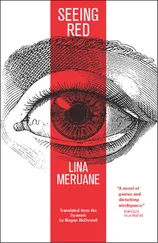Then, in the dressing rooms, I did something else to outrage the blazer blokes – another break with tradition. FA official Adrian Titcombe always led the two teams out. The referee, assistants and fourth official brought up the rear. Over the years, when I had watched this, I felt it was wrong. I thought that it undervalued the referee and his team. So I asked that the FA follow their own regulation, which stipulated that the referee should lead out the teams. For the sake of every ref who has taken charge of Finals since, I am glad that I won that little amendment to the protocol.
The last FA Cup Final at the old Wembley was the seventy-second, and was decided by a goal in the seventy-second minute. Neither the game nor the goal was memorable. Gianfranco Zola took a free-kick for Chelsea, Villa goalkeeper David James fumbled the ball, knocking it against the chest of defender Gareth Southgate, and Roberto Di Matteo thumped the lose ball into the roof of the net. Di Matteo had scored the quickest goal in an FA Cup Final (forty-two seconds) three years earlier when Chelsea beat Middlesbrough 2–0. This time, in 2000, his goal was suitably scrappy for a poor game, and the most prestigious appointment of my domestic career was not a great occasion for me either.
In fact, it was a horrid, bitter experience. It was soured utterly by that News of the World article and the way some Villa players used the story to try to put me under pressure. During the game, Villa players repeatedly made snide remarks inferring that I was biased. They said things like, ‘There’s two teams playing, Pollie. Not one.’ They said, ‘Come on, be fair.’ They hoped that, subconsciously, I would want to prove that I was not favouring Chelsea. They were hoping that I would react by giving the next marginal decision to Villa. And I am pretty sure that they had been told to use that tactic, because the players who did it the most were the right-back, the central midfielder and the left-forward. Because referees run a diagonal path throughout a match, those were the players I most often found myself near. I believed they had been instructed to target me.
The indignation I felt – the outrage – was because the allegation behind their remarks attacked my basic integrity. I had worked for twenty years to referee the Cup Final. It was my big occasion. Yet they were saying I was dishonest. Every little comment they made was like a slap in the face.
Then, right at the finish, when the teams were waiting to go up to collect their medals, a member of the Villa backroom staff said to me, ‘You f***ing Chelsea fan. You c***.’ That was the last straw. The comment touched a raw nerve. I confronted him and although I have never been someone who hits people, I honestly think I might at least have grabbed him if Joe Guest had not intervened. That would have given the News of the World a real story.
Then, as I climbed the famous thirty-nine steps to collect my own medal, the Villa fans booed and repeated the News of the World’s false allegation. Peter Jones said the finest moment of his life – of his life! – was at the end of the 1999 Cup Final. In the moment before he left the pitch, he looked back at the scene, with the winning team doing their lap of honour and the fans cheering. He opened the presentation box in his hand, looked down at his medal, and thought, ‘It doesn’t get any better than this.’ On my big day, the Villa fans were at the tunnel end and so I left the arena to catcalls from people suggesting that I was biased.
Конец ознакомительного фрагмента.
Текст предоставлен ООО «ЛитРес».
Прочитайте эту книгу целиком, купив полную легальную версию на ЛитРес.
Безопасно оплатить книгу можно банковской картой Visa, MasterCard, Maestro, со счета мобильного телефона, с платежного терминала, в салоне МТС или Связной, через PayPal, WebMoney, Яндекс.Деньги, QIWI Кошелек, бонусными картами или другим удобным Вам способом.












